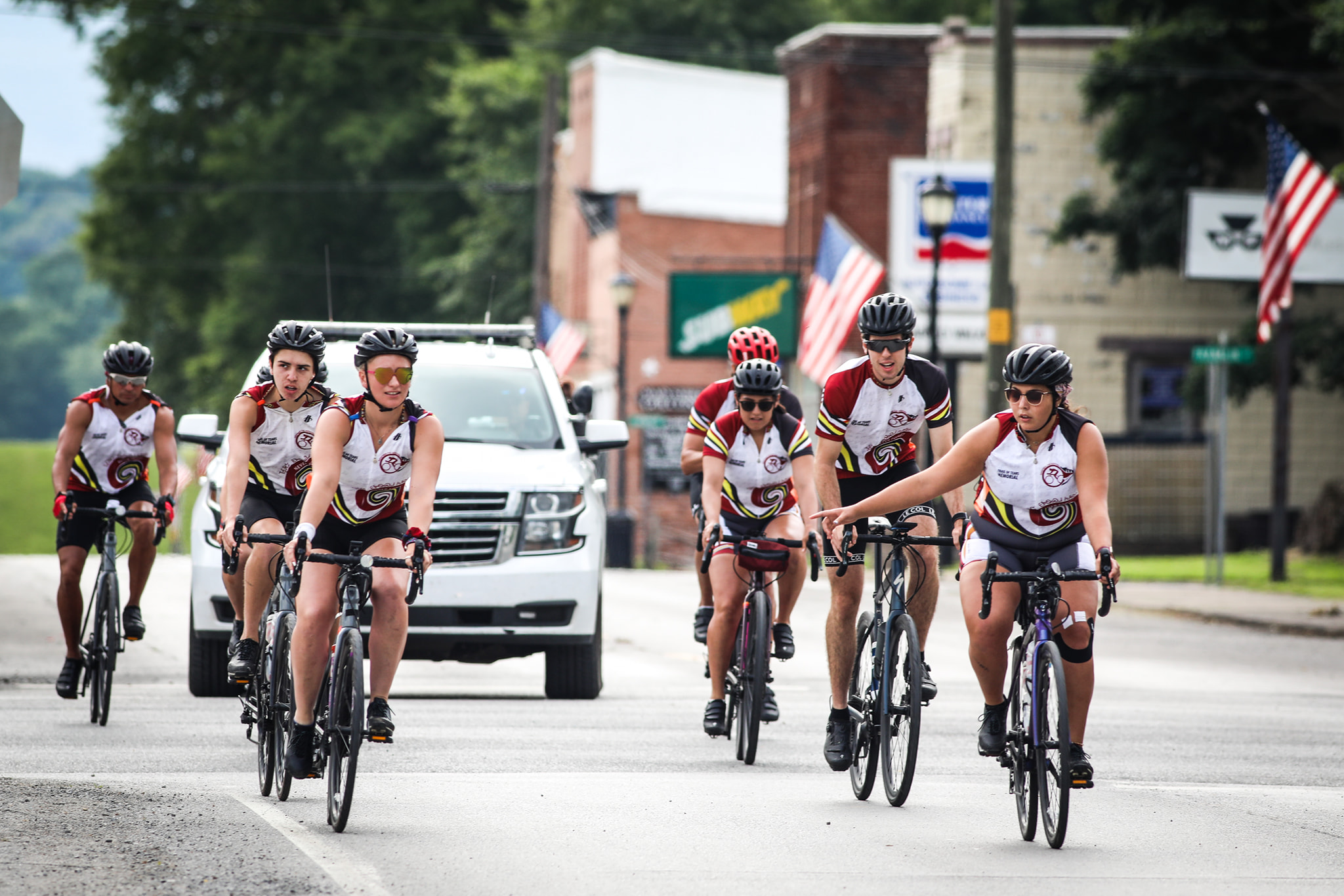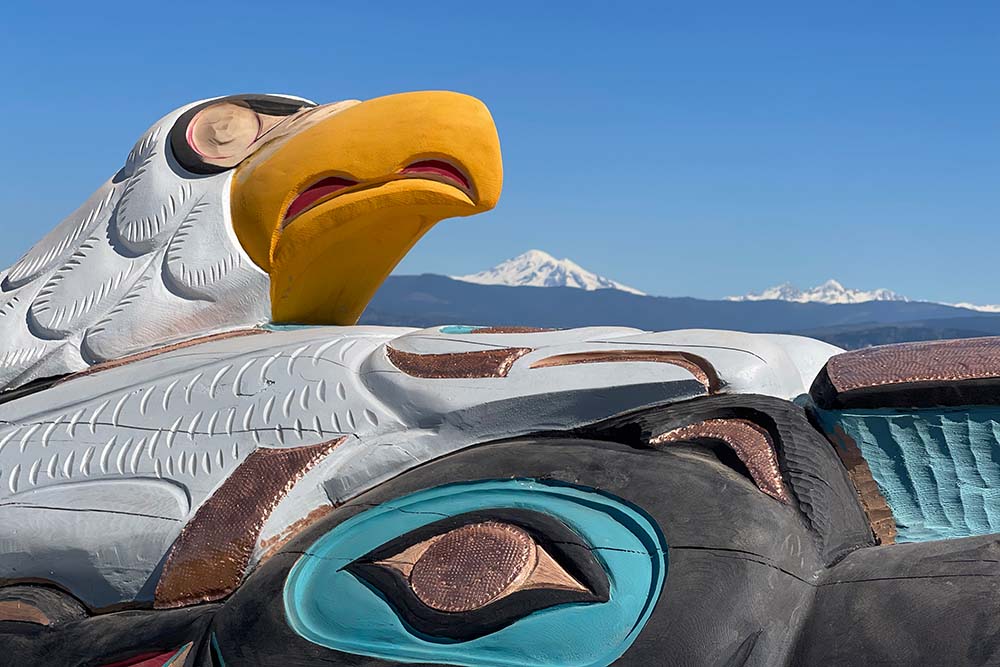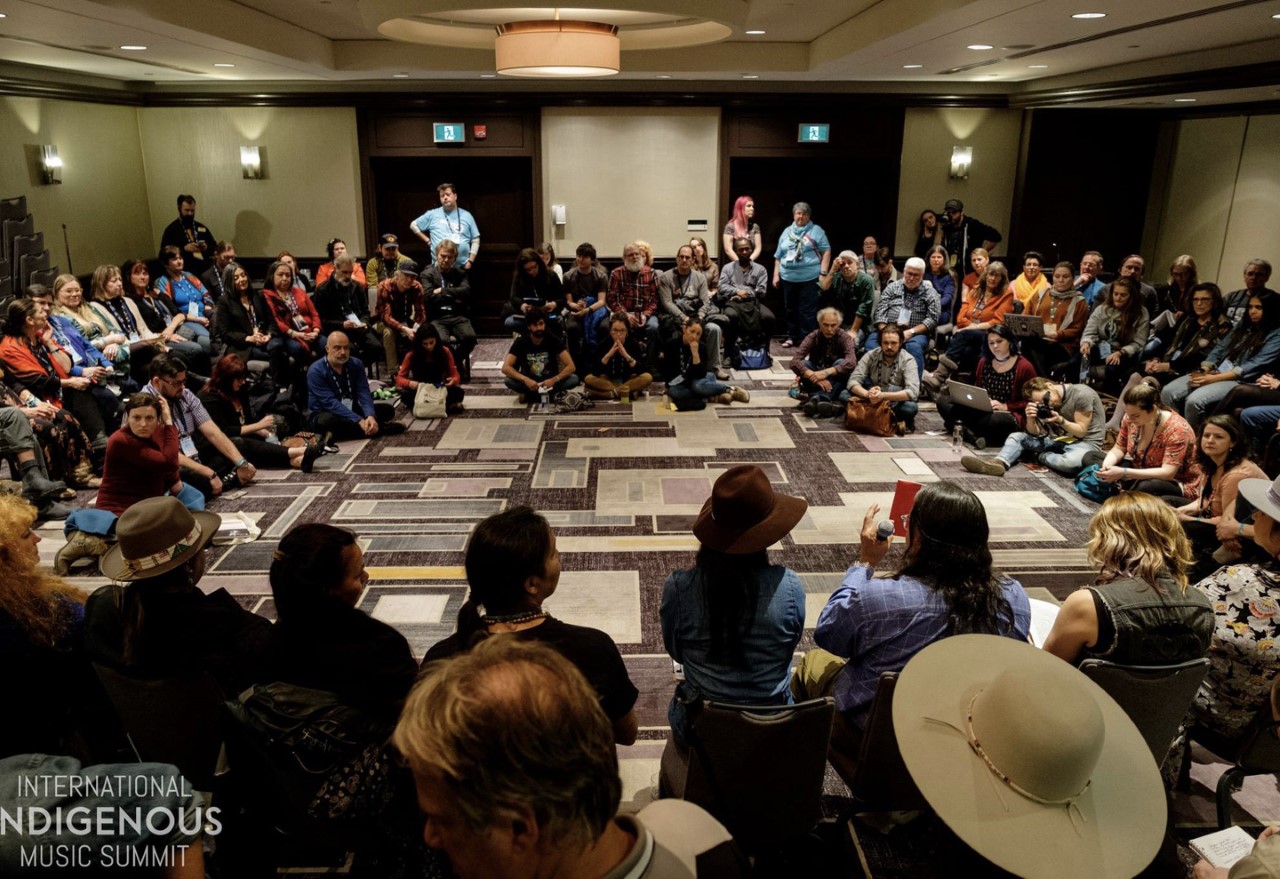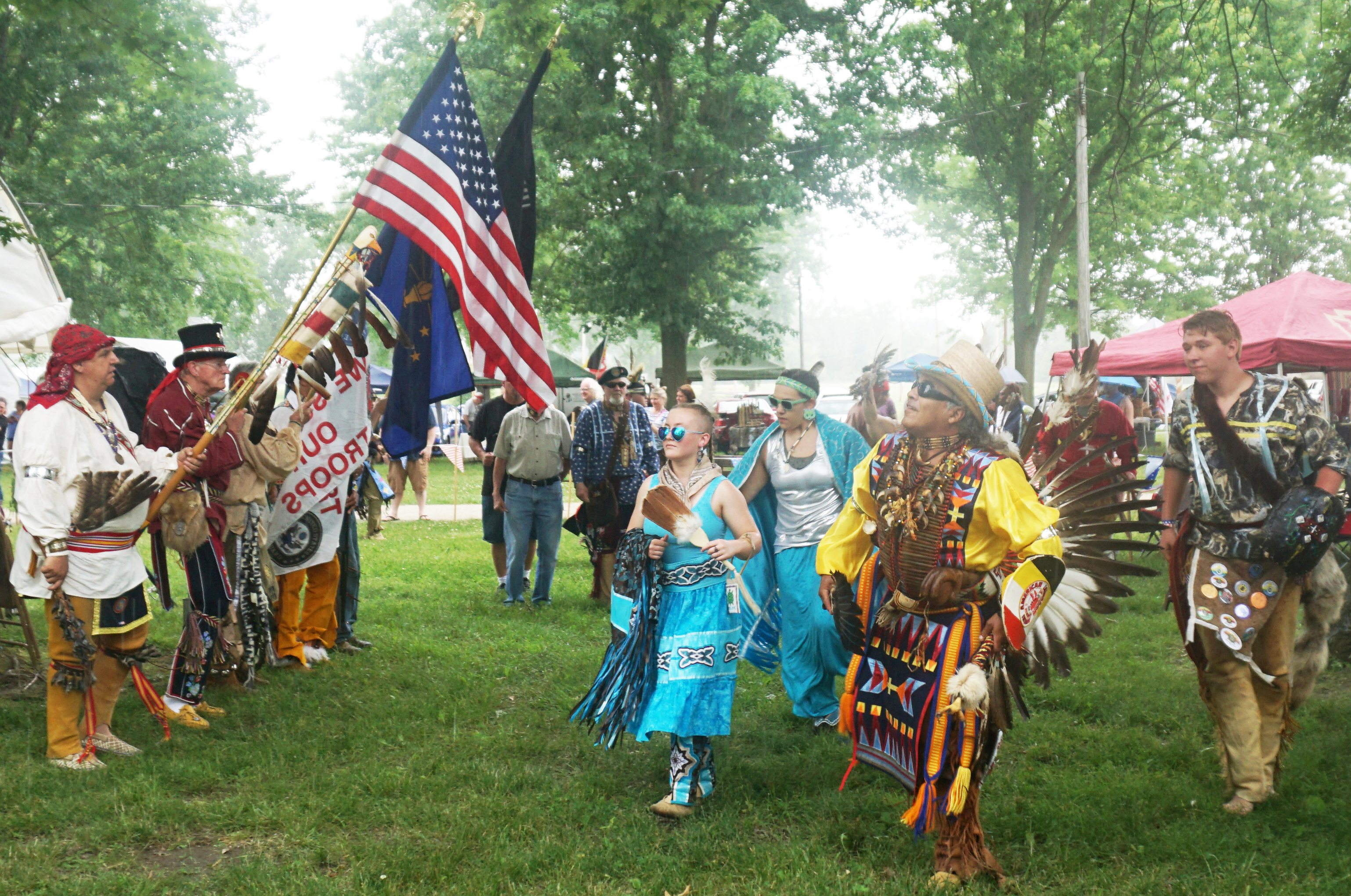
- Details
- By Andrew Kennard
A Lummi Nation totem pole making its way across the country, an annual bike ride retracing the Trail of Tears, and a weekend of Indigenous music and dancing: Here’s Native News Online’s guide for the latest happenings across Indian Country.
Want more Native News? Get the free daily newsletter today.
Totem Pole to Be Gifted to Biden Administration Continues West Coast Tour
WHEN: June 11
WHERE: UCLA in Los Angeles
On Friday, a 24-foot totem pole carved by members of the Lummi Nation will reach the University of California, Los Angeles for the 72nd stop on its Pacific Northwest and West Coast tour.
Northwest tour organizer and Lummi Nation citizen Freddie Sul ka dub Lane said that the first tour has included presentations of the story and symbols of the pole to Native communities. However, the purpose of the pole’s overall journey is to bring attention to endangered Native lands, waters, and wildlife, according to the Red Road to D.C. website.
A second tour beginning on July 14 will include visits to the Black Hills, S.D., Standing Rock, N.D., and Bears Ears, Utah, among other sites. The pole’s journey will end in Washington, D.C., where it will be gifted to the Biden administration and displayed this fall in the Smithsonian’s National Museum of the American Indian.
Those interested can follow the pole’s journey through updates and live-streamed events on its Facebook page.
 (Photo/Freddie Lane, Lummi Tribe)
(Photo/Freddie Lane, Lummi Tribe)
13th Annual Bike Ride Retracing Trail of Tears
WHEN: The ride began on May 31 and will last for almost three weeks.
WHERE: The ride began in New Echota, Ga. and will finish in Tahlequah, Okla.
Around June 7, riders from the Cherokee Nation and Eastern Band of Cherokee Indians reached the halfway point of a 950-mile journey across seven states retracing the northern route of the Trail of Tears.
The ride commemorates the Trail of Tears, the forced removal of 16,000 Cherokees in the summer of 1838 as part of the Indian Removal Act, which led to the death of 4,000 Cherokee citizens. The ride, which first started in 1984, became an annual event in 2009. Riders are put through an interview process, a physical test and six months of training.
The ride includes visits to many historic sites along the Trail of Tears, including New Echota, the Blythe Ferry, Kituwah Mound, and Mantle Rock.
All of this information and more is available at the Cherokee Nation’s website and the Remember the Removal Bike Ride Facebook page, where you can follow along with riders’ progress.
 The International Indigenous Music Summit is taking place virtually this year, from June 8-12. (Photo/International Indigenous Music Summit)
The International Indigenous Music Summit is taking place virtually this year, from June 8-12. (Photo/International Indigenous Music Summit)
Indigenous Musicians, Elders, and Others Gather for International Indigenous Music Summit
WHEN: June 8-12
WHERE: Virtual
Each year, the International Indigenous Music Summit brings a unique group of Indigneous musicians, music industry professionals, and knowledge holders together. On the schedule for this year’s virtual summit are artist showcases and the Summer Solstice Indigenous Music Awards, as well as roundtable discussions, masterclasses, and elder teachings.
This year’s theme is Giiwewizh, which is an Anishinaabe word meaning “to take or carry home.” A series of premieres throughout the summit will feature 16 documentaries in which Indigenous artists from across Canada “tell a visual story of their work, highlighting perspectives and meditations on connection to land/place, identity, and their creative process,” according to the summit’s website. Roundtable discussion topics include rematriating music spaces, Indigenous global hip-hop, and looking ahead to what comes next after the pandemic.
Each day of the summit will begin with 2:15 minutes of silence to honor the 215 children whose remains were recently discovered at the Kamloops residential school in Canada.
This year, organizers for the summit made the registration fee “pay what you can” in response to the toll the Covid-19 pandemic has taken on the music industry. You can register and learn more about the summit at its website.
 A Grand Entry in the 2018 NCGLNAC Gathering of Great Lakes Nations (Photo/Linda Andrews, NCGLNAC board co-chair)
A Grand Entry in the 2018 NCGLNAC Gathering of Great Lakes Nations (Photo/Linda Andrews, NCGLNAC board co-chair)
17th Annual NCGLNAC Gathering of Great Lakes Nations
WHEN: Saturday, June 12 from 10 a.m. to 9 p.m. and Sunday, June 13 from 10 a.m. to 4 p.m. ET
WHERE: 1010 Morton St., Tri-State Gas Engine Association Grounds, Portland, Ind.
All are welcome at the National Center for Great Lakes American Culture (NCGLNAC)’s 17th annual powwow for a weekend of dancing, appreciating Native history and art, and more. Drumming will be provided by Blue Heron, Strong Heart, and Southern Singers, as well as any walk-in drummers in attendance.
Admission is $3 except for children under 12, and food provided will include venison chili, wild rice soup, and pie. Native quillwork and basket artisans and vendors selling dance shawls and jewelry will be present, and pre-1840s reenactment camp will present a pre-contact Native lifestyle. Other activities include a silent auction raffle, a Native talent contest, and childrens’ craft activities. See this flyer for more information.
More Stories Like This
Watermark Art Center to Host “Minwaajimowinan — Good Stories” ExhibitionMuseums Alaska Awards More Than $200,000 to 12 Cultural Organizations Statewide
Zuni Youth Enrichment Project Takes Top Emerging Artist Apprentices to Phoenix for Artistic Exploration and Cultural Immersion
From Dishwasher to Award-Winning Chef: Laguna Pueblo's Josh Aragon Serves Up Albuquerque's Best Green Chile Stew
Rob Reiner's Final Work as Producer Appears to Address MMIP Crisis
Help us defend tribal sovereignty.
At Native News Online, our mission is rooted in telling the stories that strengthen sovereignty and uplift Indigenous voices — not just at year’s end, but every single day.
Because of your generosity last year, we were able to keep our reporters on the ground in tribal communities, at national gatherings and in the halls of Congress — covering the issues that matter most to Indian Country: sovereignty, culture, education, health and economic opportunity.
That support sustained us through a tough year in 2025. Now, as we look to the year ahead, we need your help right now to ensure warrior journalism remains strong — reporting that defends tribal sovereignty, amplifies Native truth, and holds power accountable.
 The stakes couldn't be higher. Your support keeps Native voices heard, Native stories told and Native sovereignty defended.
The stakes couldn't be higher. Your support keeps Native voices heard, Native stories told and Native sovereignty defended.
Stand with Warrior Journalism today.
Levi Rickert (Potawatomi), Editor & Publisher

